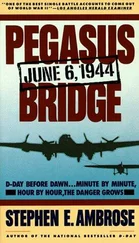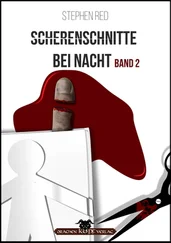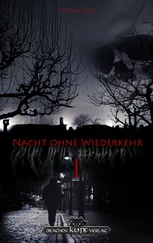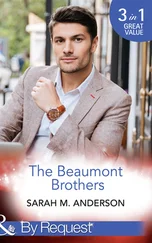Stephen Ambrose - Band of Brothers
Здесь есть возможность читать онлайн «Stephen Ambrose - Band of Brothers» весь текст электронной книги совершенно бесплатно (целиком полную версию без сокращений). В некоторых случаях можно слушать аудио, скачать через торрент в формате fb2 и присутствует краткое содержание. Жанр: История, на английском языке. Описание произведения, (предисловие) а так же отзывы посетителей доступны на портале библиотеки ЛибКат.
- Название:Band of Brothers
- Автор:
- Жанр:
- Год:неизвестен
- ISBN:нет данных
- Рейтинг книги:4 / 5. Голосов: 1
-
Избранное:Добавить в избранное
- Отзывы:
-
Ваша оценка:
- 80
- 1
- 2
- 3
- 4
- 5
Band of Brothers: краткое содержание, описание и аннотация
Предлагаем к чтению аннотацию, описание, краткое содержание или предисловие (зависит от того, что написал сам автор книги «Band of Brothers»). Если вы не нашли необходимую информацию о книге — напишите в комментариях, мы постараемся отыскать её.
Band of Brothers — читать онлайн бесплатно полную книгу (весь текст) целиком
Ниже представлен текст книги, разбитый по страницам. Система сохранения места последней прочитанной страницы, позволяет с удобством читать онлайн бесплатно книгу «Band of Brothers», без необходимости каждый раз заново искать на чём Вы остановились. Поставьте закладку, и сможете в любой момент перейти на страницу, на которой закончили чтение.
Интервал:
Закладка:
An alcoholic's dream come true, paradise beyond description. First choice of all that he could carry from one of the world's great collections, then a chance to let his friends have all they wanted, and the perfect excuse to celebrate, the end of the war had come, and he was still alive.
For the consequences, see the photograph of Nixon on the morning of May 8.
For the company as a whole, the celebration was grand and irresistible. Despite Winters' orders, and despite regular guard duty rotation, there was a party. There had to be: on May 7 the Germans surrendered in Reims to General Eisenhower, and word was flashed around Europe to cease fire, take away the blackout curtains, and let the light of peace shine out. News of the German surrender, Winston Churchill said, was "the signal for the greatest outburst of joy in the history of mankind." The men of Easy Company saw to it that Berchtesgaden participated in the party to the full.
Once the distribution of Goering's wine had taken place, Carson recalled that "you could hear the champagne corks going off all day long." As the celebration got noisier, Captain Speirs began to grow a bit worried that it would become excessive. Sergeant Mercier, remembered by Private O'Keefe as "our most professional soldier," got into the spirit of the day when he dressed in a full German officer's uniform, topped off with a monocle for his right eye. Someone got the bright idea to march him over to the company orderly room and turn him in at rifle point to Captain Speirs.
Someone got word to Speirs before Mercier showed up. When troopers brought Mercier up to Speirs's desk, prodding him with bayonets, Speirs did not look up. One of the troopers snapped a salute and declared, "Sir, we have captured this German officer. What should we do with him?"
"Take him out and shoot him," Speirs replied, not looking up.
"Sir," Mercier called out, "sir, please, sir, it's me, Sergeant Mercier."
"Mercier, get out of that silly uniform," Speirs ordered.
Shortly thereafter, he called the company together. He said he noted that the men who were relatively new to the company were celebrating out of proportion to their contribution to the victory. He wanted it toned down. No more shooting off of weapons for example, and especially not of German weapons, which made everyone jumpy when they went off.
But trying to stop the celebration was like trying to stop the tide. Not even Speirs could resist. Back in company HQ, he and Sergeant Carson sat in the orderly room, popping champagne bottles, throwing the empties out the French doors. Soon there was a pile of empties outside. Speirs and Carson went to the balcony for some fresh air. They looked at the bottles.
"Are you any good with that .45 pistol?" Speirs asked. Carson said he was.
"Let's see you take the neck off one of those bottles." Carson aimed, fired, and shattered a bottle. Speirs took his turn with the same results; soon they were banging away.
Sergeant Talbert came storming in, red-faced, ready to shoot the offenders of the company order. He saw Carson first. "Carson, I'll have your ass for this," he shouted. Just as he started explaining that Captain Speirs had ordered no shooting, Speirs stepped out from behind Carson, a smoking .45 in his hand.
After a few seconds of silence, Speirs spoke: "I'm sorry, Sergeant. I caused this. I forgot my own order."
Webster, Luz, and O'Keefe had meanwhile found their way to Goering's wine cellar. They were late, the other Easy men had already been there and Winters had withdrawn the guard, throwing the cellar open to anyone. As Webster, Luz, and O'Keefe drove to the site in Luz's Volkswagen, they saw a steady stream of German trucks, Volkswagens, even armored cars winding up the road to the officers' club.
The last contingent of E Company men had a wooden box with them, which they stuffed with bottles. "I was shocked to find that most of the champagne was new and mediocre," Webster remarked. "Here was no Napoleon brandy and the champagne had been bottled in the late 1930s. I was disappointed in Hitler."
What Webster failed to take into account was that Nixon had preceded him, and Nixon was a connoisseur of fine liquor, and he had picked out five truckloads for himself and the other officers long before Webster, also a self-styled connoisseur, arrived. "On this occasion," an amused Winters commented, "the Yale man [Nixon] pulled his rank on the Harvard boy."
Outside the club, Webster, Luz, and O'Keefe ran into a group of French soldiers, drinking, shouting "La guerre est finis! La guerre est finis!" shooting their machine-pistols into the sky, slapping the Americans on the back, asking for cigarettes, offering drinks.
The Americans gave away cigarettes, shook hands all around, and took off, driving back to their apartment as fast as possible. And there, Webster wrote, "began a party unequalled. Popping corks, spilling champagne, breaking bottles. Raucous laughter, ringing shouts, stuttering, lisping sentences. Have anusher glash. Here, goddammit, lemme pop that cork—ish my turn. Ishn thish wunnerful? Shugalug. Filler up. Where is Hitler? We gotta thank Hitler, the shun uwa bish. Bershteshgaden, I love you.
"And that was the end of the war."
Everyone in Europe was celebrating, victor and vanquished. First among the celebrants were the young men in uniform. They had survived, they would live, they had the best cause to celebrate.
On the morning of May 8, O'Keefe and Harry Lager went looking for eggs. They came to a farmhouse in a clearing, smoke curling up from the chimney. They kicked the door in, then ran inside with rifles ready to fire, and scared the hell out of two Italian deserters who jumped straight up and froze.
There was a bottle of champagne on a table. With one quick motion the Italian nearest it grabbed the neck of the bottle, stuck it out toward O'Keefe, whose rifle was pointed straight toward his stomach, and offered a drink, saying "Pax!"
The tension snapped. They drank to peace. The Americans left, to continue their egg hunt. They came to a lodge in the woods. "It was beautifully situated," O'Keefe wrote. "A man in his late twenties in civilian clothes was standing on a low porch at the front of the house. As we came to the steps leading up to the porch, he stepped down with a smile on his face and said, in English, 'The war is over. I have been listening to the wireless.'
"He was holding himself erect but it was noticeable that he had a bad right leg. I glanced at it; he explained, 'I was with the Afrika Korps and was shot up badly and sent home. I was a soldier.'
"He asked us to come in and have a glass of wine. We said 'no' but he said 'Wait! I'll bring it out,' and he left, to reappear with three glasses of wine. We raised them in salute, as he said, 'To the end of the war.' We raised ours, and we all drank. There was something basically soldierly and right about it."
They found some eggs, returned to their apartment, and celebrated the end of the war with scrambled eggs and Hitler's champagne.
18 THE SOLDIER'S DREAM LIFE
*
AUSTRIA
May 8- July 31,1945
Late on the afternoon of May 8, Winters got orders to prepare 2nd Battalion to move out that night for Zell am See, Austria, some 30 kilometers south of Berchtesgaden, where it would take up occupation duty. At, 2200 hours the convoy began to roll, headlights on full beam. In the back of the trucks the men continued their party, drinking, singing, gambling. When the convoy arrived at Zell am See in the morning, the men were dirty, unshaven, wearing grimy Army fatigue pants and blouses.
German soldiers were everywhere. Zell am See was as far south as the Wehrmacht could retreat; beyond it were the peaks of the Alps, and beyond them Italy, and all the passes were still closed by snow. There were, it turned out, about 25,000 armed German soldiers in the area of responsibility of 2nd Battalion, which numbered fewer than 600 men.
Читать дальшеИнтервал:
Закладка:
Похожие книги на «Band of Brothers»
Представляем Вашему вниманию похожие книги на «Band of Brothers» списком для выбора. Мы отобрали схожую по названию и смыслу литературу в надежде предоставить читателям больше вариантов отыскать новые, интересные, ещё непрочитанные произведения.
Обсуждение, отзывы о книге «Band of Brothers» и просто собственные мнения читателей. Оставьте ваши комментарии, напишите, что Вы думаете о произведении, его смысле или главных героях. Укажите что конкретно понравилось, а что нет, и почему Вы так считаете.



![Stephen Ambrose - Citizen Soldiers [Condensed]](/books/346737/stephen-ambrose-citizen-soldiers-condensed-thumb.webp)
![Stephan Orth - Behind Putin's Curtain - Friendships and Misadventures Inside Russia [aka Couchsurfing in Russia]](/books/415210/stephan-orth-behind-putin-s-curtain-friendships-a-thumb.webp)





